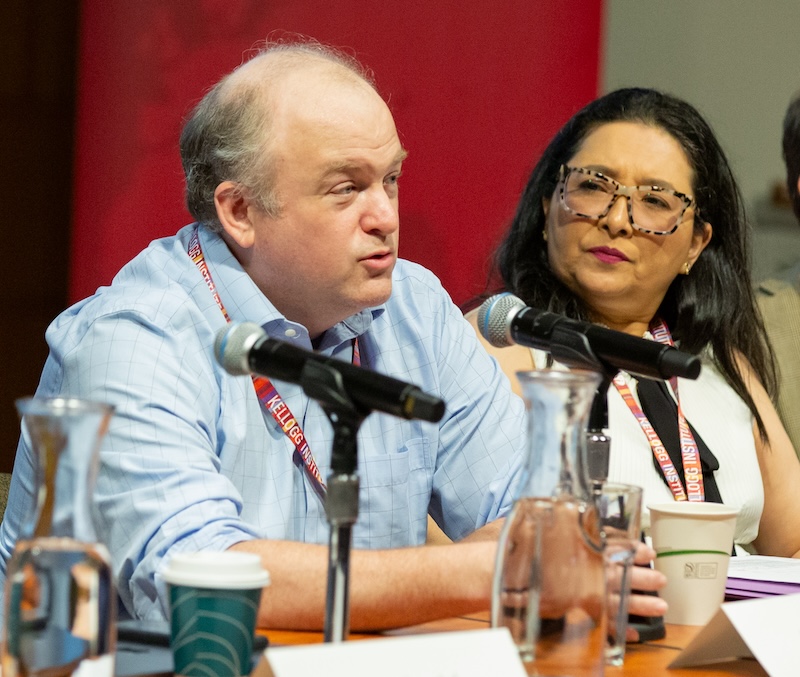 About the Episode:
About the Episode:
Interviewed by former Kellogg International Scholar Benjamín Rascón Grácia, political scientists María Isabel Puerta Riera (Valencia College) and Steven Lloyd Wilson (Brandeis University) discuss the manipulation of democratic processes through misinformation and disinformation in foreign and domestic contexts. They highlight the role of social media in spreading false information, the challenges of combating misinformation in the digital age, and the need for transparency, accountability, and critical thinking on social media platforms. They also emphasize the importance of government intervention to regulate social media and protect vulnerable groups from hate speech and discrimination.
Show Notes:
Welcome to Global Stage, a podcast highlighting academic and policy-oriented international research on democracy and human development. Global Stage is brought to you by the Kellogg Institute for International Studies, part of the Keough School of Global Affairs at the University of Notre Dame. Your host today is former Kellogg International Scholar Benjamín Rascón Gracia. His guests are Maria Isabel Puerta Riera, an adjunct professor of political science at Valencia College, and Steven Wilson, an assistant professor of politics at Brandeis University.
To begin, both Maria and Steven discuss the idea of democracy hesitancy, which is sowing distrust in institutions and elites. The aim of some foreign governments is to confuse and cause hesitancy and amp up divisiveness. Chinese and Russian governments want people to fight and become aggressive. Then, they use bots to seem like so many people on social media have the same ideas on the most polarized views. They are not interested in the content or debate, but just want people fighting and being aggressive in mainstream American media. They also talk about Tik Tok and understanding misinformation. Every generation thinks that the next generation is completely wrong and Tik Tok uses algorithms to get people to click on the next thing and keep watching. They show you videos that are extremist that make you angry and scared. These algorithms always drive toward the extreme because they get your attention. Most students or younger people are not paying attention to world events and get their news from social media. Those who believe in democracy as a way of life understand there is a challenge, but those who don’t believe in democracy are using those vehicles in a more effective way with a plan. They want to sow distrust and position a message that democracy is a bad deal for people.
Next, they talk about the media misinformation toolkit, which right now has just a Mexico focus, but they want to expand the reach to work for any country in Latin America. The free toolkit gives basic steps to identify misinformation in Spanish and has been distributed to NGOs. In basic psychology, we can see that people assign a high probability of diagnosing events and the brain does think that the conspiracy theories exist if they see them. The more and more extreme ideas get on their mental menu and cause hesitation regarding democratic governance. We need to rethink how to teach people how to identify the truth and trust the experts. Lastly, they discuss the role of the state and the difference between disinformation and misinformation.
Links:
- Learn more about María Isabel Puerta Riera.
- Learn more about Steven Lloyd Wilson.
- Learn more about the Kellogg Institute for International Studies.
- Learn more about the Global Democracy Conference, including videos.
Listen
Listen below, ask your smart device to “play Global Stage Podcast,” or find us on:
Apple | Spotify | Stitcher | iHeartRadio | TuneIn | YouTube





